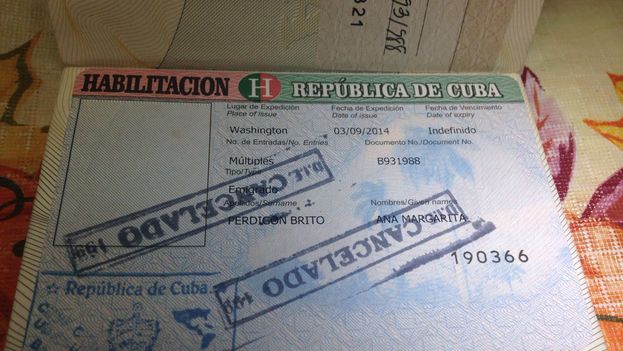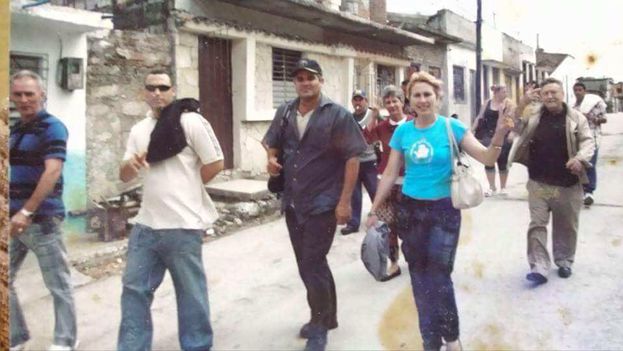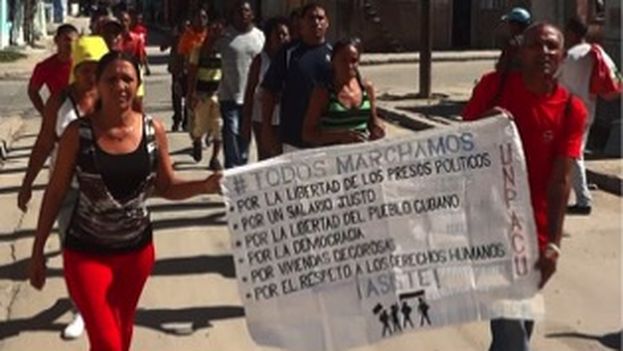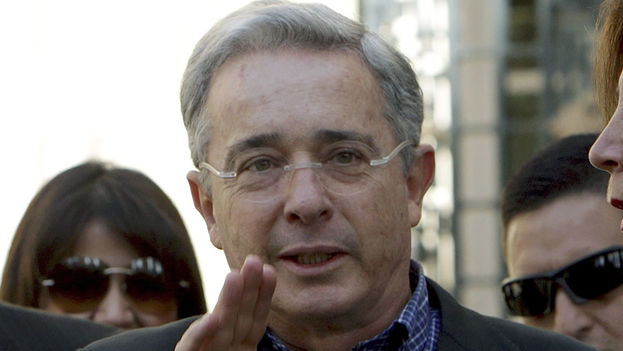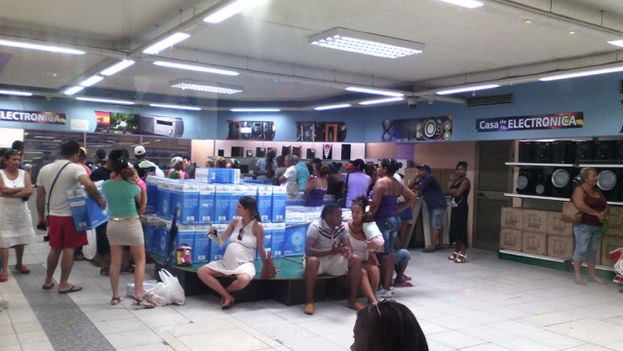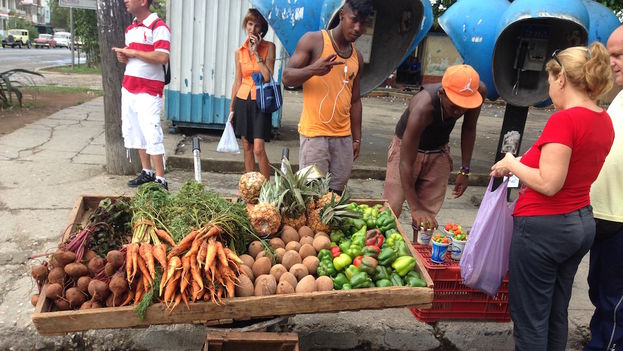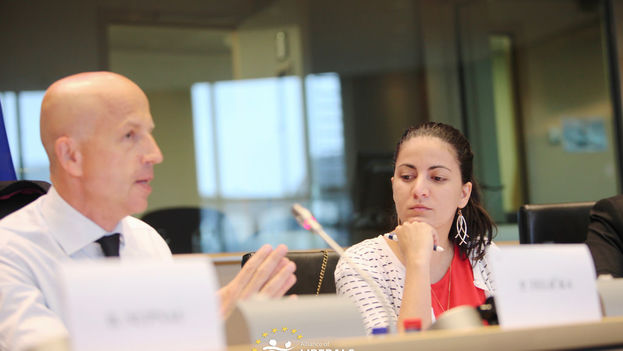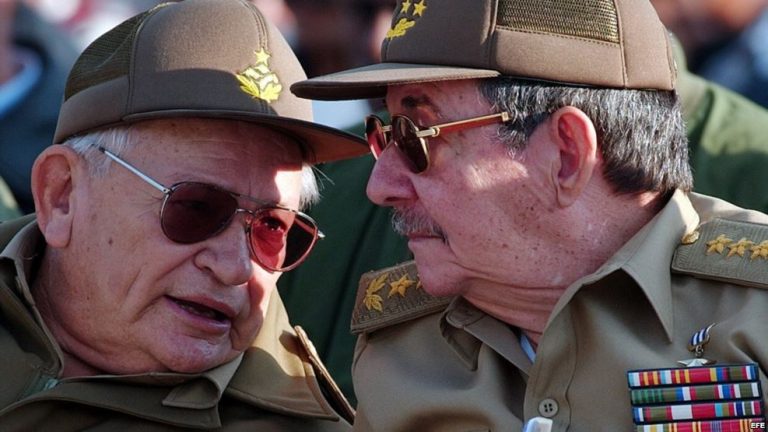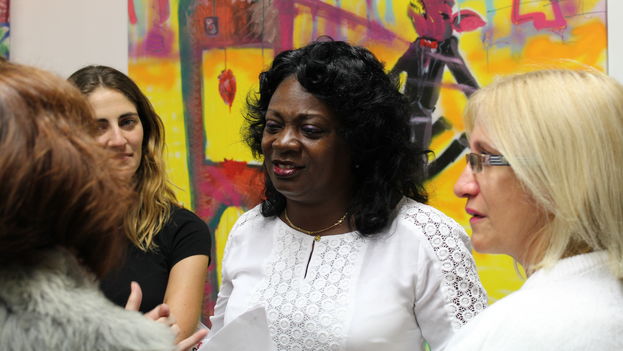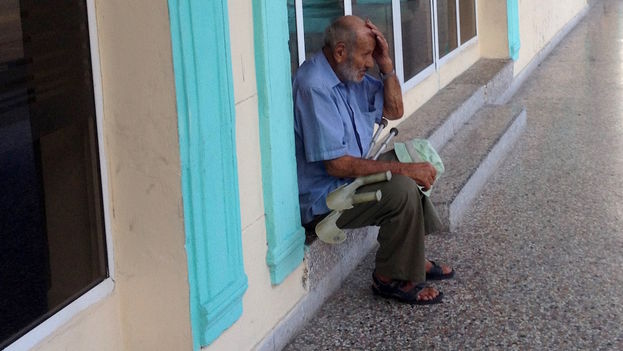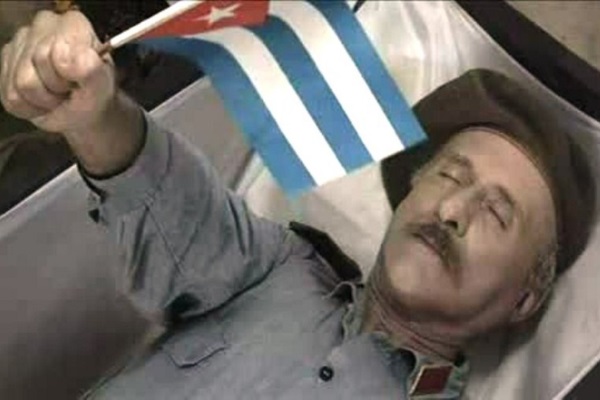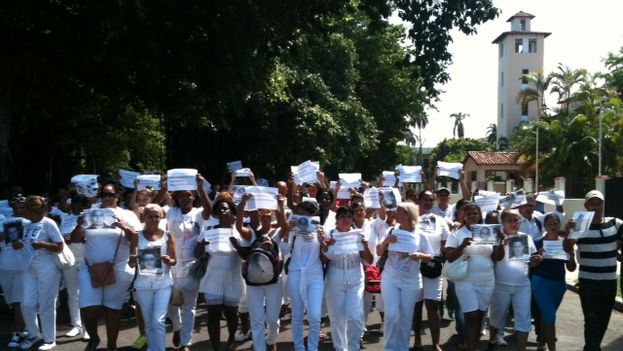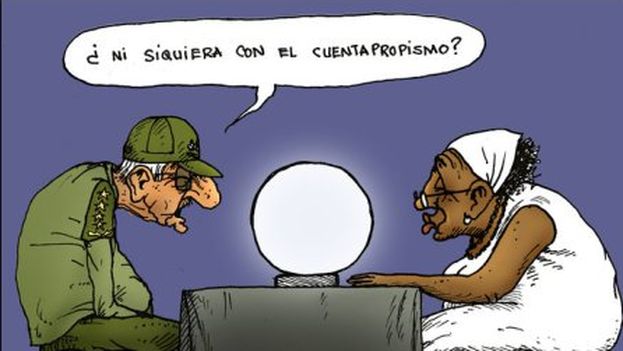
14ymedio, Mario J. Penton, 31 July 2016 – “The cartoons are not what gives the cartoonist the most laughter but how much they were made to pay for them,” joked Ley Martinez, one of the five cartoonists invited to the Independent Art and Literature Festival in Miami this Saturday to talk about exile cartoon humor, their experiences and outlooks.
The graphic artists Aristide (Aristides Miguel Pumeriega), Garrincha (Gustavo Rodriguez), Pong (Alfredo Pong), Ley Martinez and Omar Santana spoke about their work for more than an hour with about a hundred people. They remembered the years of work in Cuba when publishing a cartoon could cost them a job. continue reading
“At the end of the eighties, there came a Soviet journalist from Pravda who was interested in interviewing me because of a cartoon I had made called ‘The Bobocracia.’ They were publishing it in Moscow as a demonstration of Cuba’s glastnost progress. What they got was the next week I was prohibited from going on with that work,” remembered Aristide.
The limitations of the profession’s practice on the Island impelled many of them to create their art outside of the country. Nevertheless, censorship also is present on the other side of the Florida Straits. “Miami is a very prudish city. There are problems with placing sexual symbols in the cartoons. In important media outlets they are very careful with so-called obscene words. But in the end, there exists freedom of creation. It is another type of censorship, but it, too, is censorship,” said Santana.
For Ley Martinez, a graphic designer and cartoonist for eight years, the invitees to the meeting this Saturday represent a wide spectrum of styles and themes. “They have been, since Aristide, who is an emblematic figure in Cuban graphic art, ending with me taking the first steps in the genre.”
The artist shared his experience in the use of social networks for the spreading of his work and commented on the difference between those who stay in traditional press outlets and the young ones who use more virtual media. “We want to create an environment of opinion so that people understand from the art what is happening,” he added.
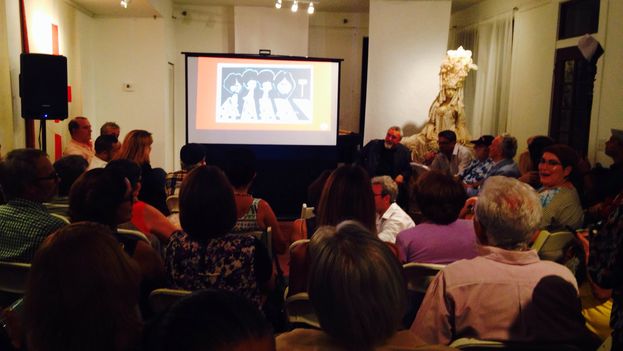
For Martinez, graphic humor in exile does not have to be limited to Cuba. “You can make local graphic humor. About the mayor of Miami or Hialeah. It is one way of raising awareness and states of mind,” he said.
Aristide, meanwhile, said that for him the cartoon is inextricably linked to the fight against the Cuban government: “I always wanted to come to Miami because it was the other side of the coin. I had to come to this city to continue the fight against the Cuban dictatorship that seized my son. That fight of the Cuban people means a lot to me.”
The artist, a veteran of the event, remembered the years in which he was persecuted because of his work on the Island, for which he had to exile himself in Miami. About the current state of the cartoon in south Florida, he lamented the decreasing presence of the cartoon in media outlets, especially those related to Cuba.
For Garrincha, the work of the graphic humorist should not be reduced to cartoons and political satire. “One should speak of the humor in the graphic and the graphic in the humor, and people should be open to other kinds of humor.”
The artist thinks that an interaction on humoristic themes is maintained between the Island and the Cubans of Miami. “Often I have found that they send me a cartoon by email from Cuba, and they tell me, look how good this is, and when I look, the cartoon is mine. The flow between shores is maintained.”
Among the attendees of the event was the Cuban writer Legna Rodriguez Iglesias, in addition to other artists and writers from the Island as well as from the diaspora.
“How not to come to an event like this? In the sketches of these artists each of us has seen a reflection of ourselves. Even Bobo de Abela has emigrated by now,” commented Elizabeth Diaz, one of those present.
Translated by Mary Lou Keel


